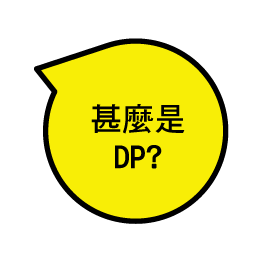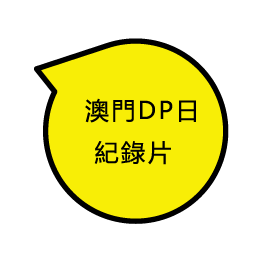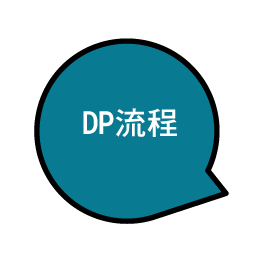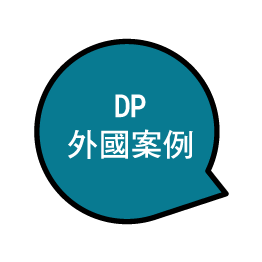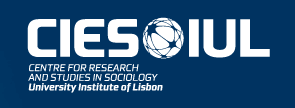Source
According to one of the most respected specialists in communication ethics, French professor Claude-Jean Bertrand (1934-2007), a Press Council is one of the most exciting and complete form of regulation in journalism.
It is highly exciting and quite complete because it gathers three of the main stakeholders in the journalistic process: media owners (managers and directors), producers of information (journalists) and the public (representatives of the public or of public opinion).
For many, it is a mechanism of self-regulation, because it derives from the media sector, or journalism, having around the same table of debate and discussion the information protagonists. For others, the Council is set on a model of hetero-regulation because, although it is set inside the sector, it implies and contains the view and intervention of elements that are foreign to the media.
Inspired by the British Press Council, this Press Council model has varied according to the cultural, social, political, business and professional traditions of the different countries that adopt it.
In Portugal, it was created in 1975 and abolished in 1990, to be replaced by other regulatory bodies. However, what proved that Bertrand was right was that, in 2008, initiatives were started by the press sector aiming to restore the Press Council, making it possible that in a near future, together with other means of regulation, a Press Council will return to the Portuguese media.
The “moral court”
‘The Press Councils were globally seen as of those of a moral court […] to defend the newspapers and the journalists from threats to their freedom and independence, and on the other hand, ward off the public from abuses to that same freedom by newspapers or journalist’
The Press Council (PC) entered Portuguese media history with the 1975 Press Law, the first of its kind after the 25th of April 1974 revolution, and set the restoration of the Freedom of the Press. This law was prepared by a committee especially appointed by the new political forces in power, and based on the tradition, prestige and experience of the British Press Council, but also on others, such as the German and the Austrian Press Councils – as recalled by one of the members of the committee, Alberto Arons de Carvalho, in “A Liberdade de Informação e o Conselho de Imprensa” (1986) – it proposed the creation of a Press Council in Portugal. This was a true innovation of the new press law, 26 years after a royal committee in charge of analysing the press situation in Great Britain recommended the creation of the British Press Council. However, the tradition of the Council dates back to 1916, the year when a kind of court called ‘Committee for the Proper Practice of the Press’ was created in Sweden.
In Portugal, this innovation was welcomed by the partners involved, particularly by businessmen and journalists. Although it was not of their initiative, the proposal fit in a well defined direction – particularly in Europe – demanding lines of conduct for newspapers and journalists, being accepted and complied by both.
In what concerns Portugal, the genesis of the Council was diverse from other similar bodies, which were started by the involved parties, that is, by the press itself. In Portugal, due to a specific political and social situation, which was responsible for the lack of initiative in the sector, it was the State – or the political power – that moved forward. However, the Council was structurally and legally bound to the legislative body – the Parliament or ‘Assembly of the Republic’ – thus becoming independent from the executive body, the government.
The powers appointed to the Press Councils were different, in accordance with the purposes shared by the sector and each country’s legislation, but apart from specific powers, the deliberations of the Press Councils were globally seen as of those of a “moral court”.
And what do these “courts” judge? They judge cases and issues that, on the one hand, defend the newspapers and the journalists from threats to their freedom and independence, and on the other hand, ward off the public from abuses to that same freedom by newspapers or journalists.
This double sided situation is very exciting: newspapers, journalists and public defend and, at the same time, attack what threatens a common interest: the practice of responsible and independent journalism, which doubles as a public asset and a right.
Diversity and independence
‘The new press, which combines the printed paper with other languages, such as those of the audio and video, needs its own regulation space, the one that has recently been invaded by the audiovisual sector’
The 15 years of Press Council history have witnessed successive legal improvement of its powers and of its composition. It included a judge (who presided over the Council), company managers (2), newspaper directors (2), journalists (6), non-journalist workers of the sector (2), citizens of ‘acknowledged merit’ elected by the Parliament (4), and other personalities chosen by the remaining members (2). These last six were regarded as representatives of public opinion.
The safeguard of the Council’s independence rested in the way its 19 members were appointed. Each type of counsellor was appointed by the respective entities, by method of their own choice. This way, with so many and the variety of organisations involved, and through untimed appointments, the composition of the Council was non-controllable by any political, business or professional sector, which served to benefit its independence.
For this was the ‘original sin’ behind other regulation mechanisms that followed the PC. There was no diversity in the appointments, and members were essentially chosen via political negotiation among the parliamentary parties. The business and the professional perspectives and the consultation of “public opinion” disappeared altogether from the bodies that came after the PC.
The growing politicisation and professionalization (of its members and structure) have marked the successors of the PC. That is why newspapers and journalists alike have kept a positive memory of the Council and, why during the last two decades, have criticised and sometimes fought against its successors, accusing them of lack of independence and of excessive editorial intervention.
The Press Council was served by great journalists, elected for three years by the Union of Journalists, and four journalists even became vice-presidents of the Press Council.
Other outstanding personalities of the Portuguese journalism and culture have also had their seat at the Press Council, either as administrators or as newspapers directors. Writers, politicians, thinkers and ambassadors were also elected for the PC by the Assembly of the Republic or were appointed to represent public opinion, the newspaper’s readership.
‘Another of the PC’s activities was to analyse and give opinion, upon request or on its own initiative, about decrees and other legal devices regarding the freedom of the press and the practice of journalism’
The vast list of personalities from Portuguese journalism, culture and literature that were part of the PC is, indeed, impressive. That has never been repeated in the regulatory bodies that came after the PC.
For one of the Council’s strengths was its great diversity and representativeness. The fact that none of its members had become professionalised in the Council – they fulfilled their term of office almost with no pay – could bring some (operational) difficulties but, on the other hand, it brought prestige for the institution. In the bodies that followed, the legislator opted to have the Council’s members professionalised.
The extinction of the PC was enacted during the 1989 Constitutional Revision, which established the High Authority for the Mass Media (AACS – Alta Autoridade para a Comunicação Social), later replaced by the current Regulatory Entity for the Media (ERC – Entidade Reguladora para a Comunicação Social) as a consequence of the 2004 Constitutional Revision.
Complaints, answers and opinions
What did the Press Council do? Its main activity was to analyse the complaints sent by individuals and entities as regards the content of news and media reports published in the press.
Although it was called the Press Council, they also analysed issues and complaints related to radio and television, especially when there were deontological issues that involved the programmes and the professionals.
The public soon discovered that the PC was an instance where they could post complaints about actions of newspapers and journalists who – with or without reason – they considered damaging to the freedom (and responsibility) of the press. The complaints were subsequently delivered to a member of the PC, tasked as a rapporteur of the process and whose resolution proposal would be debated in plenary meetings.
A newspaper that was punished by its ethical conduct would be forced to publish the sanction resolution of the Council, or risk penalty of a judicial report. This was the power of the “moral court” to which newspapers and journalists were submitted, very few protests were reported against the decisions of the Council.
The members of the Council could also, at any time, regardless of the existence of complaints, schedule the analysis of the performance of any newspaper or journalist to troubleshoot serious deontological or legal violations. The PC’s decisions often originated in the attention given by its members to what was being published in the press. During the process, the newspaper or journalist concerned was always heard by the Council.
The 1975 Press Law established the ‘right of reply’ as one of the rights included in the citizens’ right to information. Meaning that, any one or entity, whenever considering itself directly or indirectly harmed by published information, could send a response to the newspaper and claim its publication. Sometimes, the newspapers would not publish it. The PC would then probe the fairness of this refusal and, if unjustified, it would order the newspaper to publish the reply. The cases concerning the right of reply were yet another major occupation of the Council.
‘The vast list of personalities from Portuguese journalism, culture and literature that were part of the Press Councils is, indeed, impressive’
One of the most sensitive issues committed, by law, to the Council – one that it had to deal with on many occasions – concerned the journalists’ so-called “conscience clause”. If the newspaper in which he/she worked changed its editorial line, the journalist could resign claiming justified reason, being, therefore, compensated. It was up to PC to confirm the mentioned change in the editorial line, which has happened three times.
Another of the PC’s activities was to analyse and give opinion, upon request or on its own initiative, about decrees and other legal devices regarding the freedom of the press and the practice of journalism. Legislators would find, in the PC, a significant contributor, out of its natural professional and sector-related sensibility when facing initiatives that, according to the PC, could benefit or harm those values.
So, two of the most important tasks of the Council, apart from fulfilling other minor duties conferred by law, were to work as a moral court and consultative body.
Return to a Press Council
The committee that, in 1975, worked rapidly on recasting a Press Law for a different Portugal, wrote, in the project then delivered to the government, that “by creating a Press Council, we were concerned on giving clear political content, in its best sense, and a high moral dignity to this body”, which should be “the expression of the professional interests and public opinion, whose job is to assess the press”.
The PC has observed 15 years of Portuguese journalism, at a time when the Press was a crucial and energetic sector. The 1990’s had its attention focused on the television and, later, on the internet. The press did not disappear but it became weakened. When the successors of the PC were created, this change to the audiovisual, in detriment of the written Press, became clearer. First the AACS and then the ERC, have centered – and still do – their focus on Television and, increasingly, on communication through the Internet.
Twenty years after the extinction of the Press Council, the rapid evolution – in technology and contents – of the press sector has, paradoxically, enforced some looking back. The Press has history and proven honours and is now searching for a future in-between the paper and the screen, but it will certainly have a specific function in the globalised and mediatised world in which we live.
The new reality imposes a reflection: throughout the 1990’s, regulation has turned to the audiovisual but, throughout the first decade of the 21st Century, the “new” press, which combines the printed paper with other languages, such as those of the audio and video, needs its own regulation space, the one that has recently been “invaded” by the audiovisual sector.
The relaunch of the Portuguese Press Council has been ongoing since 2008 and the idea came from the press’ own businessmen and managers.
“From the old Press Council, we have to keep the experience that has allowed editors, journalists, directors and public representatives to create the foundations of responsibility specific to the activity – what we now call self-regulation”, says the president of the Portuguese Press Association, João Palmeiro, pointing out that this new Press Council’s the scope of action “will be exclusively that of the written media, whether printed or digital, and in the case of the latter it will include the animated images posted on websites”.
The proposal has already been presented to partners of the sector, particularly the Union of Journalists, and the process has advanced cautiously, taking into account that, although, this time, the initiative is not coming from the State, the current legislation must undergo some adjustments in order to fit into a new Press Council and its competences.
Although he did not ignore or omit the difficulties and limitations of the Council during the difficult years it was active, Arons de Carvalho, regarded as one of the “fathers” of the 1975 Press Law, a former member of the Council and author of an award-winning piece of analysis of the PC’s activity between 1975 and 1985, concluded that the Council produced “an important contribution” to “the dignity and prestige of the Portuguese press and to its freedom”.
“Although it wasn’t, certainly, one of the most important or polemic institutions, the PC is one of the rare institutions that has not, so far, been worn out or discredited by time”, Arons wrote when, in 1985, he summarized the first 10 years of the Council.
The first comments following the announcement of the Press Law revision, included mainly concerns voiced by some sectors of Macau press media as to the competences and activity of the Press Council included in the law.
Doubts posed were mainly related to concerns that such a Press Council could threaten the freedom of expression. And yet, those concerns are possibly only rooted in the lack, or insufficient, information about the existent Macau Press Law and also the way the Council is composed.
And truth is, three of the Council attributions are clearly stated in the article n.25 or the Press Law:
1– Safeguard the freedom of the press, namely against the political and economic powers
2– Safeguard the pluralism and freedom of expression and thought through the press
3– Safeguard the right of the public to information
Apparently those seem enough guarantees of what is fundamental to ensure the good operation of a free and responsible press.
In order to contribute to better understanding the importance and the operation of a Press Council, Macau Daily Times has invited journalist Fernando Cascais, former vice-president of the Press Council in Portugal, to give our readers an account of his experience.

